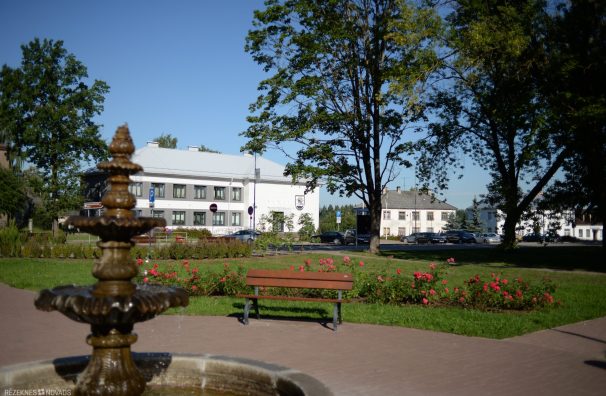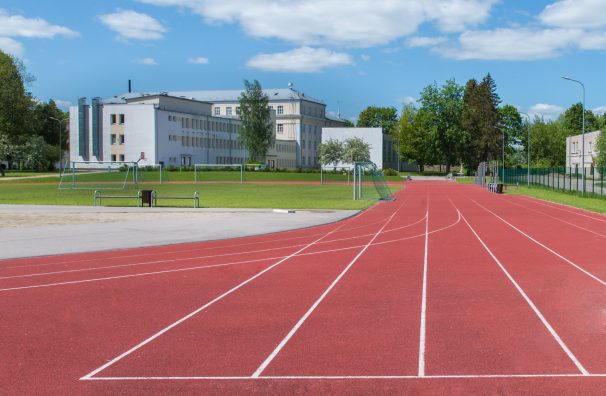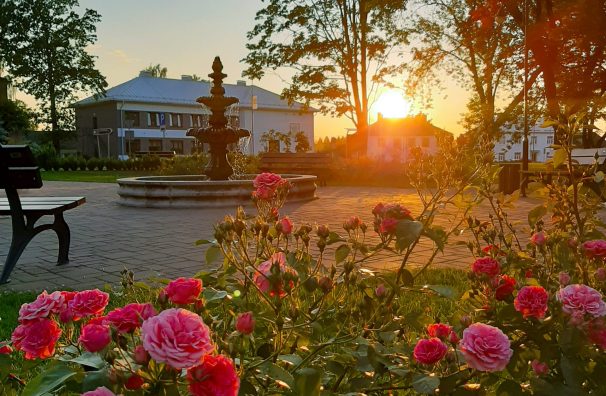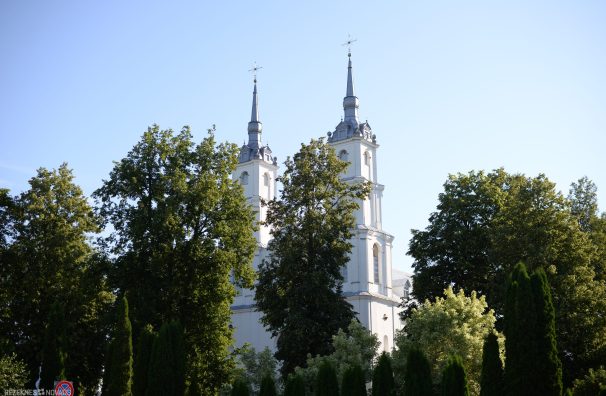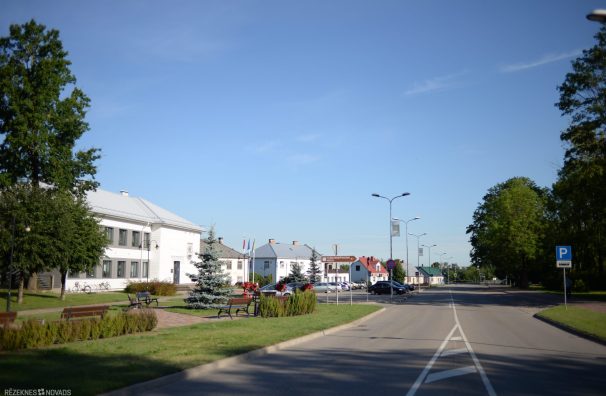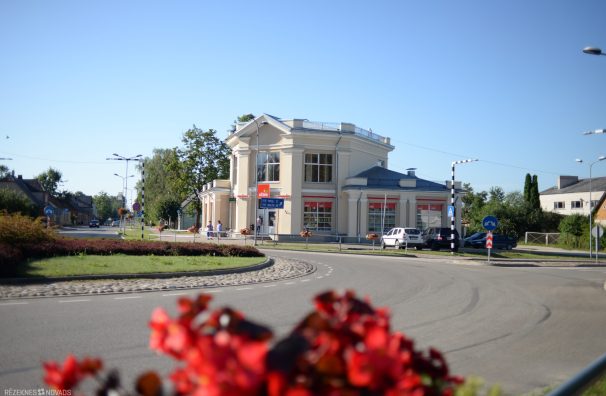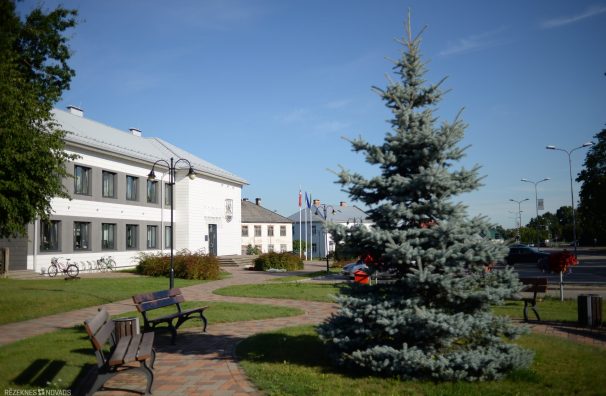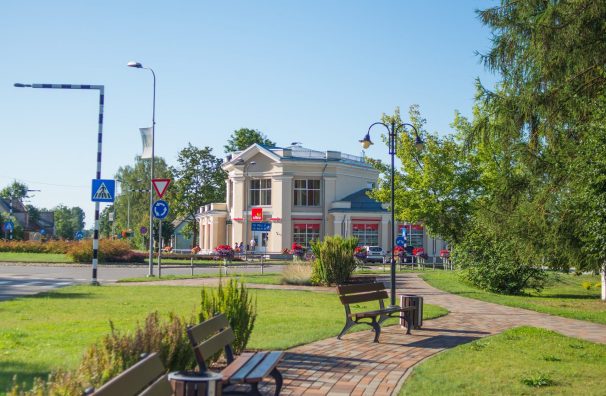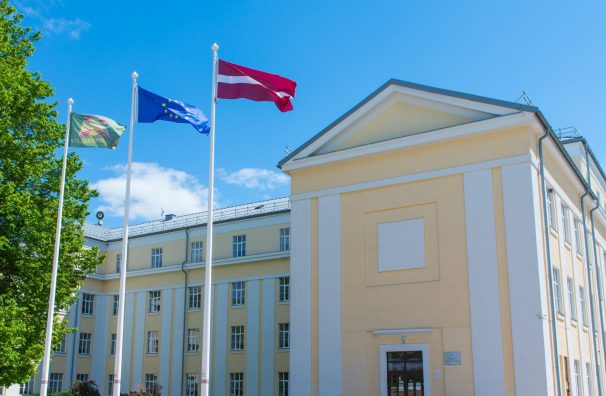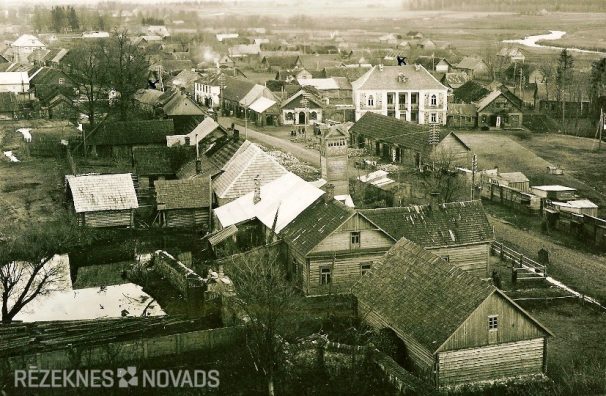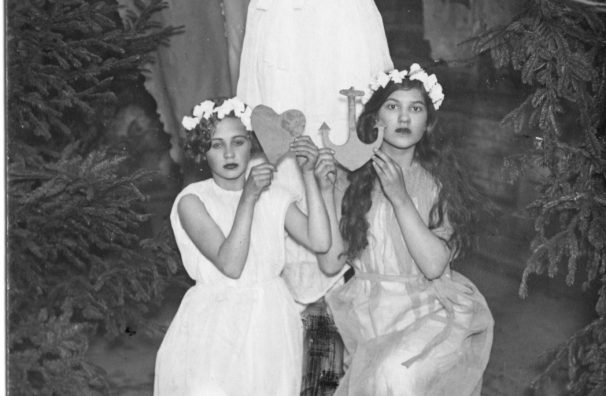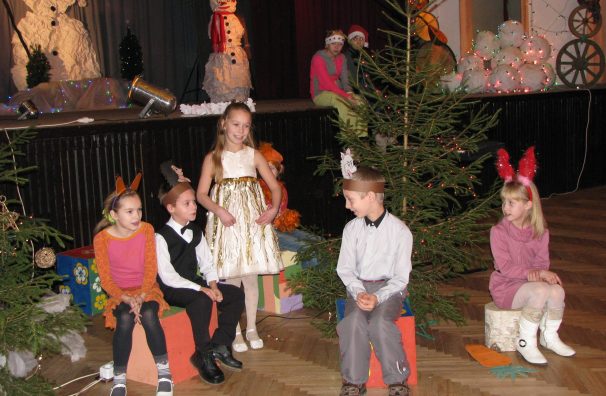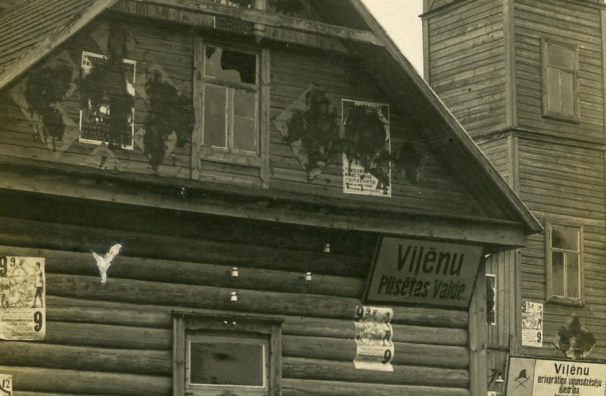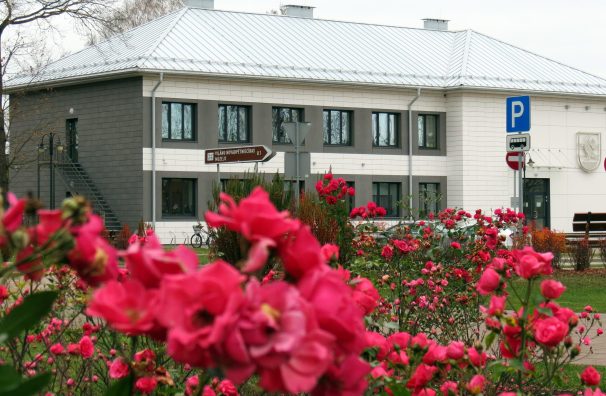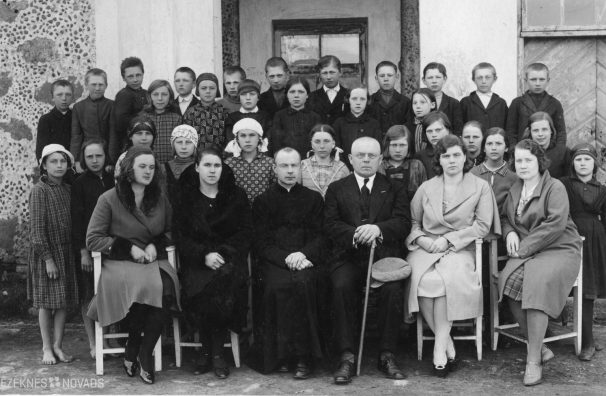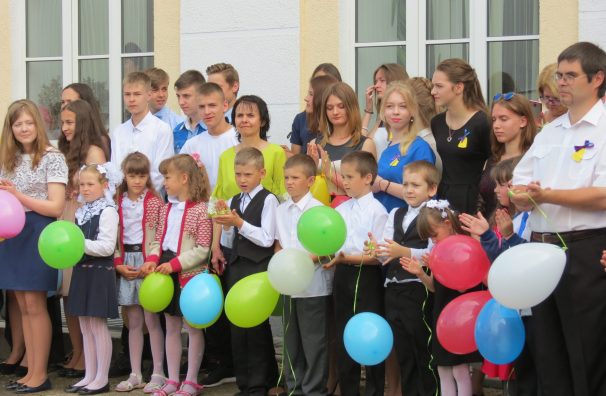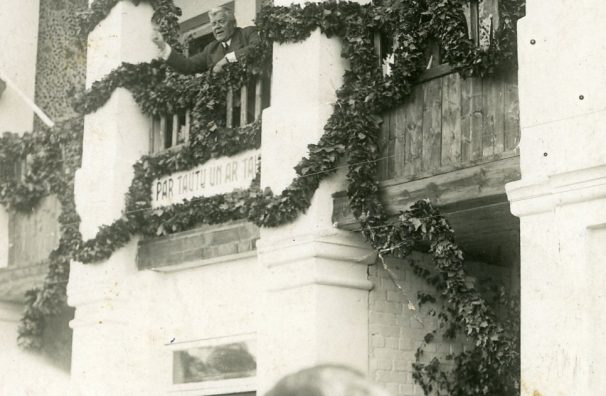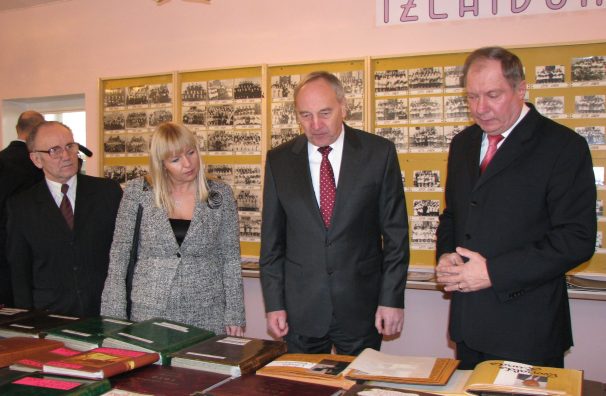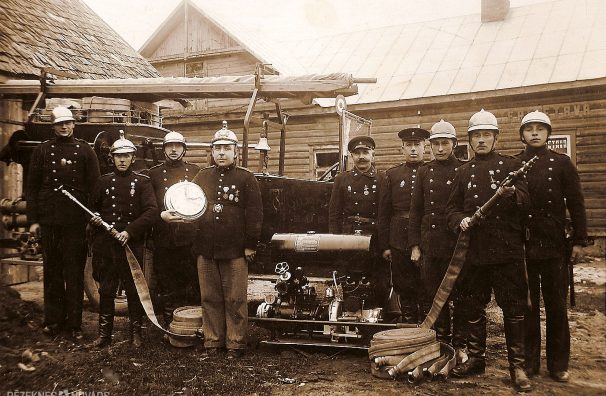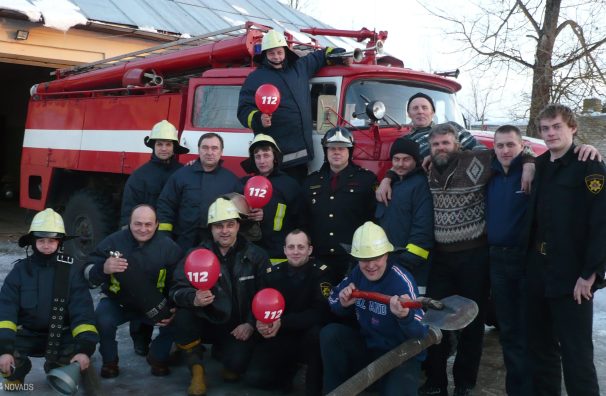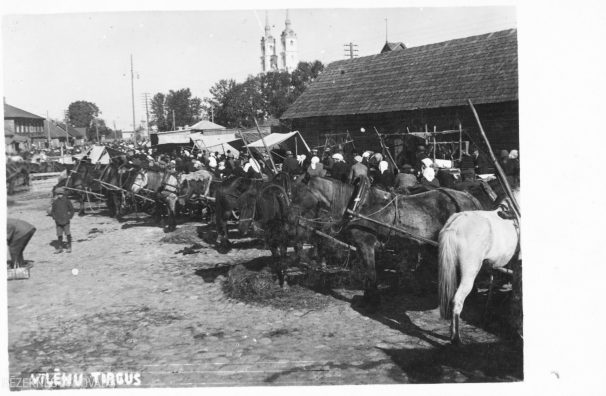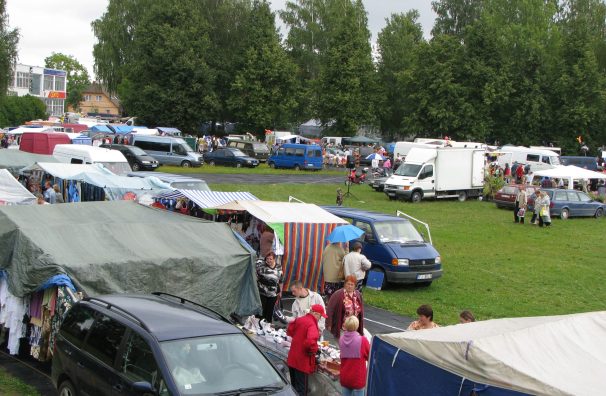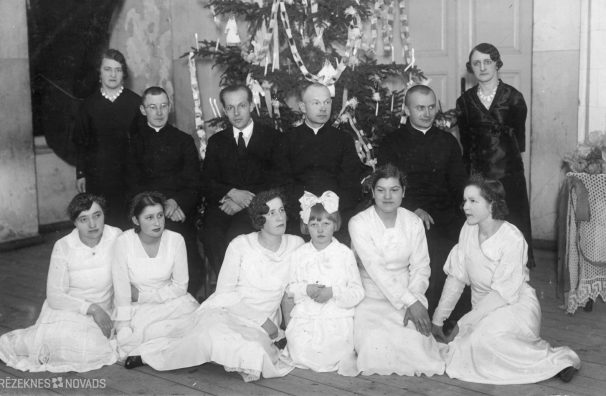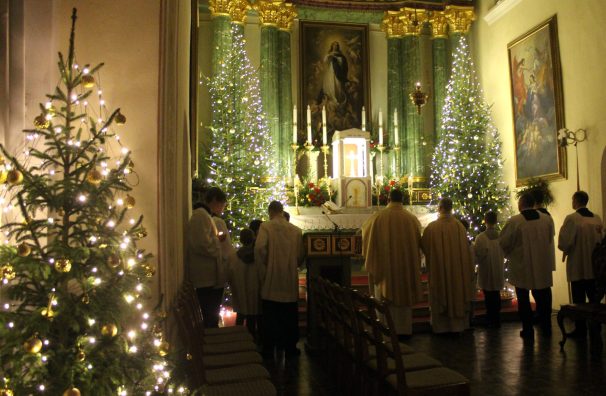Vilanu town
490 ha
Pagasta kopējā platība
2772
Iedzīvotāju skaits (uz 01.01.2025)
History OF Viļānu
The year of celebration of Vilnius is not really known. First mentioned in 1495 in a lease contract with the name Wielonaand, by his signature and stamp, was confirmed by the Livonian Order master V. fon Plettenbergs, concluding a contract on lens rights with feudal J. de Loe.
In 1507 the estate, which was one of the largest in Latgale, went into the property of the de Overlake family, who lived in the municipality until 1603, when King Sigismund III J. de Overlac, King of Poland, was healed as unreliable from Vilnius. The Vilnius Manor was handed over TO T. Dombrov, who in turn gave it to Mr de Offenbergs of the ancient Dynasty. In the possession of this dynasty, Vilnius remained until 1731, when the estate was taken over by representatives of the Manor family of Latgale – brothers I. and J. Riki.
In 1752 Viļānu was produced by Miķelis Riks, who was also Inflanty's deputy and Vaivads. He is the first landlord whose activity was strongly influenced by the development of the municipality, as THE monastery and Sv were built in Vilnius under THE direction of Rika. Archangeal Miickel's Church from bricks in a baroque style.
Location at the trade route Riga – Rezekne facilitated the development of Vilnius. It prompted Mr Willan's owner, F. rick, to ensure that the Vilnius was given the rights of the peace, which was strongly resisted by the monks, fearing the death of Jews in the sleep.
In 1830 Catherine Rick and Maria, mother of Gustav Mantebra (born) Rick), the property was sold to Gustav Uncle Karlim Manteifelim. Nine years later, VTP5T was bought by Vicenty Yanovsky. Already 19.gs. In the early 50 s, Janovskis built a proud three-storey flax spinning factory near the manor house IN Maltas. There were three such factories in the Russian Empire, two in Moscow, the third in Yanovsk Manor. In Vilnius, one of the largest Russian leather mills was also located. All the material produced was delivered to the army intendent. There were also many other local sites, such as two lime biscuits, brick mills, water mills, beer wounds.
In 1862 Viļāniem was awarded the rights of the stake.
1914 - 1918 - THE development of Viļānu was stopped by the First World War. Only after the establishment OF the Latvian state, Viļāni began to live.
In 1924 Marian congregation monks arrived in Vilnius: priests: Benedict Skrinda and Broņislav Valiptre. They entered the Marian congregation activities in Vilnius and throughout Latvia.
On 25 February 1928, Viļāniem granted the city rightsit already owned 163 ha of land and had 65 trade companies.
1932 an electricity distribution network was built in the city, 1936 - slaughterhouse.
During World War Ii, the Nazis destroyed about half of the city of Vilnius. The city itself was destroyed. On July 28, 1944, Soviet troops entered the city.
In 1919as well as 1947-1949, Viļāni was the centre of the county, from 1949 to 1962.
1949 In Vilnius, a secondary school was opened for the first time in their history.
1950 the Vilnius HES began to operate on the Maltese River. In 1951, a liaison office building was restored, the hotel was started by a hotel and a tea shop.
1952 A new four-storey high school building in Rēzekne Street was built in Vilnius.
1953 the vivids received a new district cultural house.
1955 the stadium “gateway” was discovered.
1959 the work was started by Vilnius Universal Shop with six chapters, the largest and most modern shop in Vilnius district.
1961 the Vilnius Children's Music School was established.
Vivids, with their presence at important times of history, have strengthened the People's confidence and faith in the fight for the restoration of free Latvia.
23 August 1989 The “Baltic Road” held BY LTF also took place in Vilnius City.
January 1991 in the tragic days, the vivids were in the directions of Zakusalas and THE TV Tower.
In 1994 the operation of Vilnius HES was renewed, which is the first private HES in Baltics.
In 1995 In Vilnius, a memorial plate for the victims of genocide of totalitarian regimes was discovered at the railway station.
11 November 1999 the commemorative plaque was swelled by the Vilnius Liberators from the red carpets on January 11, 1920, and the national fighters of the commemoration.
Viļāni market
THE specific tradition OF Viļānu is Viļānu. On the second Sunday of each month, at 7.00 – 14.00 The traditional market for monthly craftsmen and domestic producers is held in Vilnius. Areas dedicated to street trade in the streets and stadiums of the city. Certain streets are allocated to traders in individual product groups. Food – Raina Street; craftsmen – flowers street; industry – central street; plants, animals – Raina street along stadium; used goods, parts – stadium.
THE Viļānu market is one of THE distinguishing marks OF Viļānu. To buy and sell the wickers on the second Sunday of each month, it has been gathered since 1 May 1993. Due to the constraints of the covid-19 pandemic, the market did not exist, but it has resumed its activities.
Health and social care centre “Viļāni”
Viļānu hospitals had historically been the Central Hospital of Rezekne. After restoration of the independence of the Republic of Latvia, it was converted into SIA “Viļānu Hospital”. His long-term manager was a doctor, Vidiņš. On April 21, 2022, the Rēzekne municipality council decided on the conversion of SIA “Viļānu Hospital” into a municipal institution “health and social care centre“ Viļāni ”. The institution“ Health and Social Care Centre ”“ Viļāni ”is a municipal authority under the supervision of the municipality of Rezekne. The Authority was established by 1 August 2022 and launched by 5 August 2022.
The objective of “Viļāni” of the Health and Social Care Centre is to provide persons with social care and rehabilitation services aimed at satisfying the basic needs of persons who have objective difficulties in their carers due to age or functional disorders.
The health and social care centre “Viļāni” provides medical advice, procedure cabinet, X-ray, ultrasonoscopy office, electrocardiography, short-term care, gynaecologist cabinet. Physeotherapist services are available to clients, surgical-traumatologist private practice, as well as social care unit, for chronic patient care.
By-laws and price list of services
Viļānu City Anthem
As white as Ieva's shelf,
As charming as a bite
A city ON the shore OF Maltas
And it sounds like the closest poetry.
Look, look, Look!
Those people among the history cutters!
How hard it is, so hard-
Generates the hardest rocks.
Here our fathers and grandfathers,
The white church of the white goddess,
That's what we're really looking for!-
We're part of the country.
Look, look, Look!
Those people among the history cutters!
How hard it is, so hard-
Generates the hardest rocks.
Shuffle waters Malta
Change of generations
Hearts recorded at heart
Viļāni Ivflower krasti
